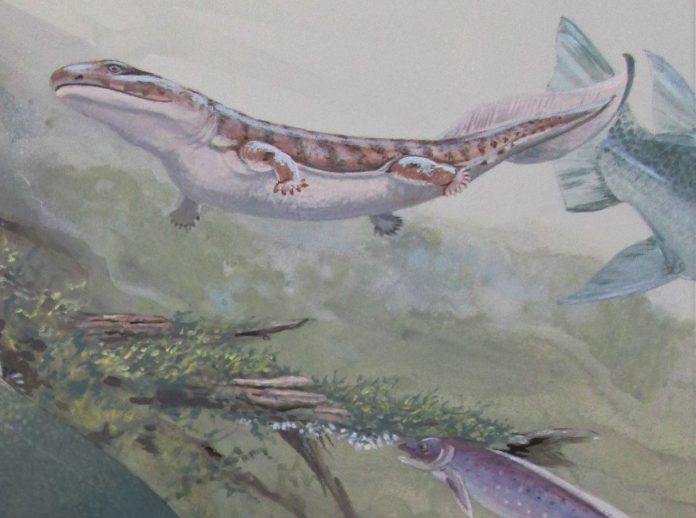A second ancient lungfish has been discovered in Africa, adding another piece to the jigsaw of evolving aquatic life forms more than 400 million years ago.
The new fossil lungfish genus Isityumzi mlomomde was found about 10,000km from a previous species described in Morocco, and is of interest because it existed in a high latitude (70 degrees south) or polar environment at the time.
Flinders University researcher Dr Alice Clement says the “scrappy” fossil remains including tooth plates and scales were found in the Famennian Witpoort Formation off the western cape of South Africa.
“This lungfish material is significant for a number of reasons,” Dr Clement says.
“Firstly it represents the only Late Devonian lungfish known from Western Gondwana (when South America and Africa were one continent). During this period, about 372-359 million years ago, South Africa was situated next to the South Pole,” she says.
“Secondly, the new taxa from the Waterloo Farm Formation seems to have lived in a thriving ecosystem, indicating this region was not as cold as the polar regions of today.”
Dr Clement says the animal would still have been subject to long periods of winter darkness, very different to the freshwater habitats that lungfish live in today when there are only six known species of lungfish living only in Africa, South America and Australia.
Isityumzi mlomomde means “a long-mouthed device for crushing” in isiXhosa, one of the official languages of South Africa.
Around 100 kinds of primitive lungfish (Dipnoi) evolved from the early Devonian period more than 410 million years ago. More than 25 originated in Australian (Gondwanan) and others are known to have lived in temperate tropical and subtropical waters of China and Morocco in the Northern Hemisphere.
Lungfish are a group of fish most closely related to all tetrapods – all terrestrial vertebrates including amphibians, reptiles, birds and mammals.
“In this way, a lungfish is more closely related to humans than it is to a goldfish!” says Dr Clement, who has been involved in naming three other new ancient lungfish.
The paper, ‘A high latitude Devonian lungfish, from the Famennian of South Africe’ (2019) by RW Gess and AM Clement has been published in PeerJ (Journal of Life and Environmental Sciences) DOI: 10.7717/peerj.8073
Dr Clement worked with palaeontologist Dr Rob Gess at Rhodes University in Grahamstown, South Africa with a Vice-Chancellor’s Award for Early Career Researcher. She also has a Flinders Impact Early Career Seed Grant for research into the Devonian ‘Age of Fishes’.















